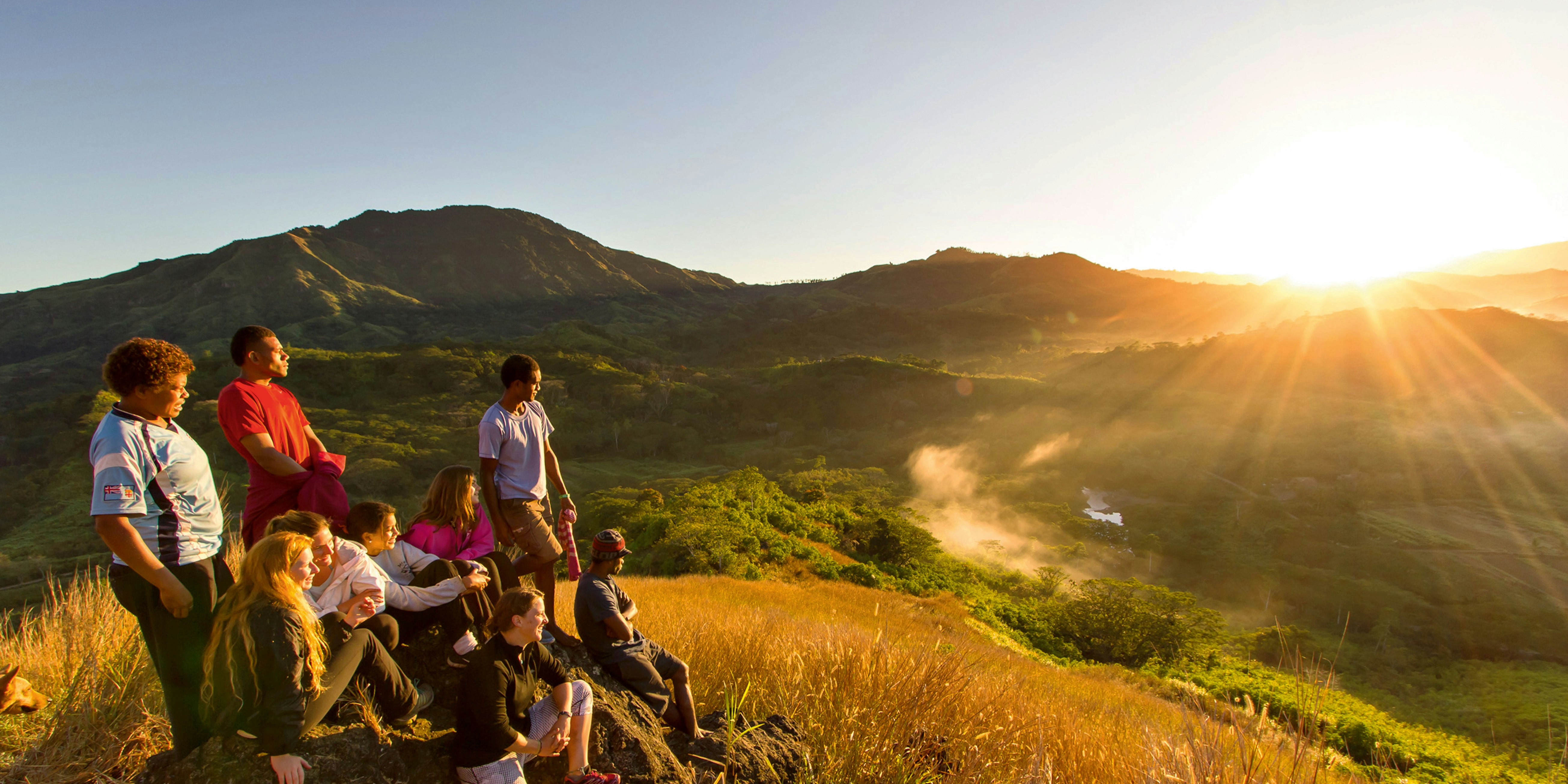- Author:
- Lauren Anderson
- Published:
- June 15, 2015
- Favorites:
- Tagged In:
- Student Travel
It’s time to “rewild the child,” says the British writer George Monbiot.
“Every child in every school in the country, every term, should have a week in the countryside. And I think that would have a transformative effect, not just on the children themselves and on their education, but on the whole of society.”
This quote rang true to us, and George Monbiot’s video was quickly forwarded around our international offices from Melbourne, Australia to Phnom Penh, Cambodia to New Orleans, USA. The idea of getting children back to nature is a message echoed in a book currently tucked into many of our backpacks, tote bags, and carry-ons. This summer Rustic Pathways is reading Richard Louv’s Last Child in the Woods: Saving our Children from Nature Deficit Disorder.
Earlier this spring, our 2015 program leaders received a package in the mail. It contained a t-shirt, a letter welcoming them to the team, a handful of stickers, and a copy of Last Child in the Woods. It also came with an assignment – read this book and understand what you’re up against.

In the age of FaceTime, Snapchat, and WiFi everywhere, spending leisure time outdoors is often a deliberate and active choice. It is notably absent from so many school curricula, and giving children time to connect with nature is often left to extracurricular, supplemental activities.
Now, more than ever, we are fiercely advocating for the benefits of experiential education. Our programs, along with the many other wonderful opportunities for out-of-classroom learning, are needed in the face of nature deficit disorder. Children and teenagers across the socioeconomic spectrum benefit from programs that focus on the development of skills like emotional intelligence, flexibility, independence, and cultural sensitivity. There is no educational replacement for time spent outdoors.
As Richard Louv says, “Time in nature is not leisure time; it’s an essential investment in our children’s health (and also, by the way, in our own).”
Lauren Anderson
Program Staffing and Training Director
Lauren joined Rustic Pathways in 2008 after graduating from Emory University. She spent her first six years in Costa Rica overseeing our operations and seasonal staff. Lauren then formed our Alumni Association where she developed programs for continuing student involvement. She now uses her extensive skill set to continue to improve the hiring and training of all program leaders across the globe. Lauren lives in Chicago, travels often, and enjoys maintaining her Spanish fluency.
